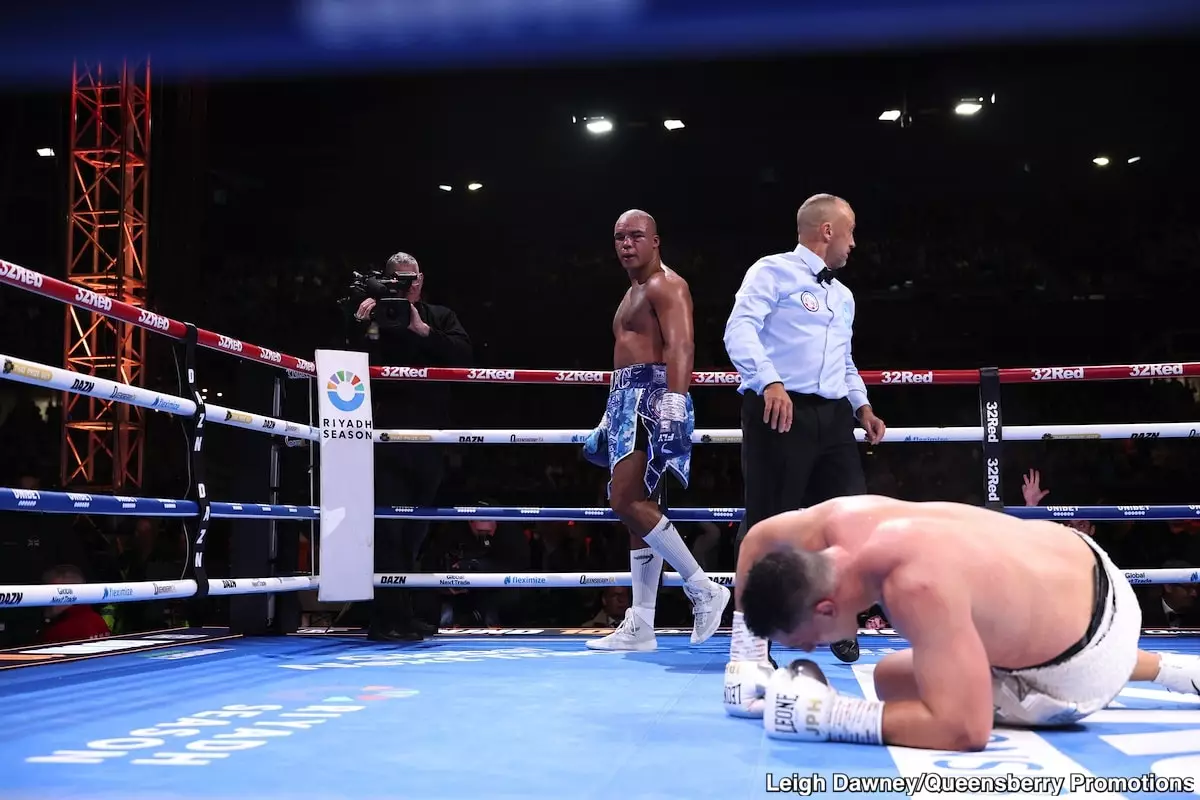In a dramatic bout that captured the attention of boxing enthusiasts, Fabio Wardley secured a staggering 10th-round knockout victory over Justis Huni to claim the WBA interim heavyweight title. This electrifying encounter, which took place at Portman Road in Ipswich, England, bore witness to perhaps the most unexpected finish in recent boxing history. This was not just another title fight; it unveiled the complexities of a heavyweight contender’s journey, fraught with challenges and overlooked potential.
Wardley’s Struggles in the Ring
From the outset, the bout showcased Wardley’s vulnerability. The 30-year-old boxer entered the ring with an undefeated record yet appeared dazed and battered as the rounds progressed. His opponent, the younger Huni, capitalized on his technical prowess, outboxing Wardley with apparent ease. By the seventh round, it was evident that Wardley had not just tired; he had become reliant on clinches, struggling to maintain his composure. While it could be easy to chalk this up to fatigue, it highlighted a larger concern regarding Wardley’s true capabilities.
The fight was undoubtedly a contest of stamina and skill. Huni displayed an impressive array of techniques that emphasized Wardley’s limitations. In this clash of styles, Wardley’s one-dimensional approach came to the forefront. Though he ultimately snatched victory from the jaws of defeat with a powerful right hand that left Huni crumpling to the canvas, it raised the alarming question: is this the mark of a champion, or merely a lucky shot from a weary fighter?
The Judge’s Controversial Call
The stoppage provoked mixed responses. While Wardley’s knockout was jaggedly spectacular, the timing of the referee’s decision to halt the fight left much to be desired. Huni, though momentarily incapacitated, managed to rise and appear on solid footing despite being counted out. Such decisions often draw the ire of fans and pundits alike; was it an early stoppage, or a justified call given the fight’s tenor? It becomes a conversation worth noting as we analyze the sport’s inherent subjectivity and the fragile balance between athlete safety and competitive integrity.
Questions Ahead for Wardley
Claiming the interim title is a monumental achievement, no doubt, but the path ahead for Wardley doesn’t seem lucrative. The prospect of challenging seasoned fighters like Kubrat Pulev may seem appealing on the surface but exposes him to a greater risk of facing an even more formidable opponent. Moreover, the specter of facing elite champions like Oleksandr Usyk and Daniel Dubois looms ominously. Analytical commentators will point towards Wardley’s limitations—his predictable patterns and lack of adaptability—making him an unattractive matchup for increasingly skilled opponents who thrive on exploiting such weaknesses.
Additionally, the consensus within the boxing community lends itself to the notion that Wardley’s skillset is limited, invoking comparisons to past fighters known more for their toughness than versatility. In hindsight, a matchup with Agit Kabayel—a boxer that deserves more opportunities—would have provided a clearer picture of Wardley’s standing within the heavyweight division. Yet here we are, left wondering whether luck will continue to favor the brave or if true skill and evolution as a fighter are paramount for long-term success.

